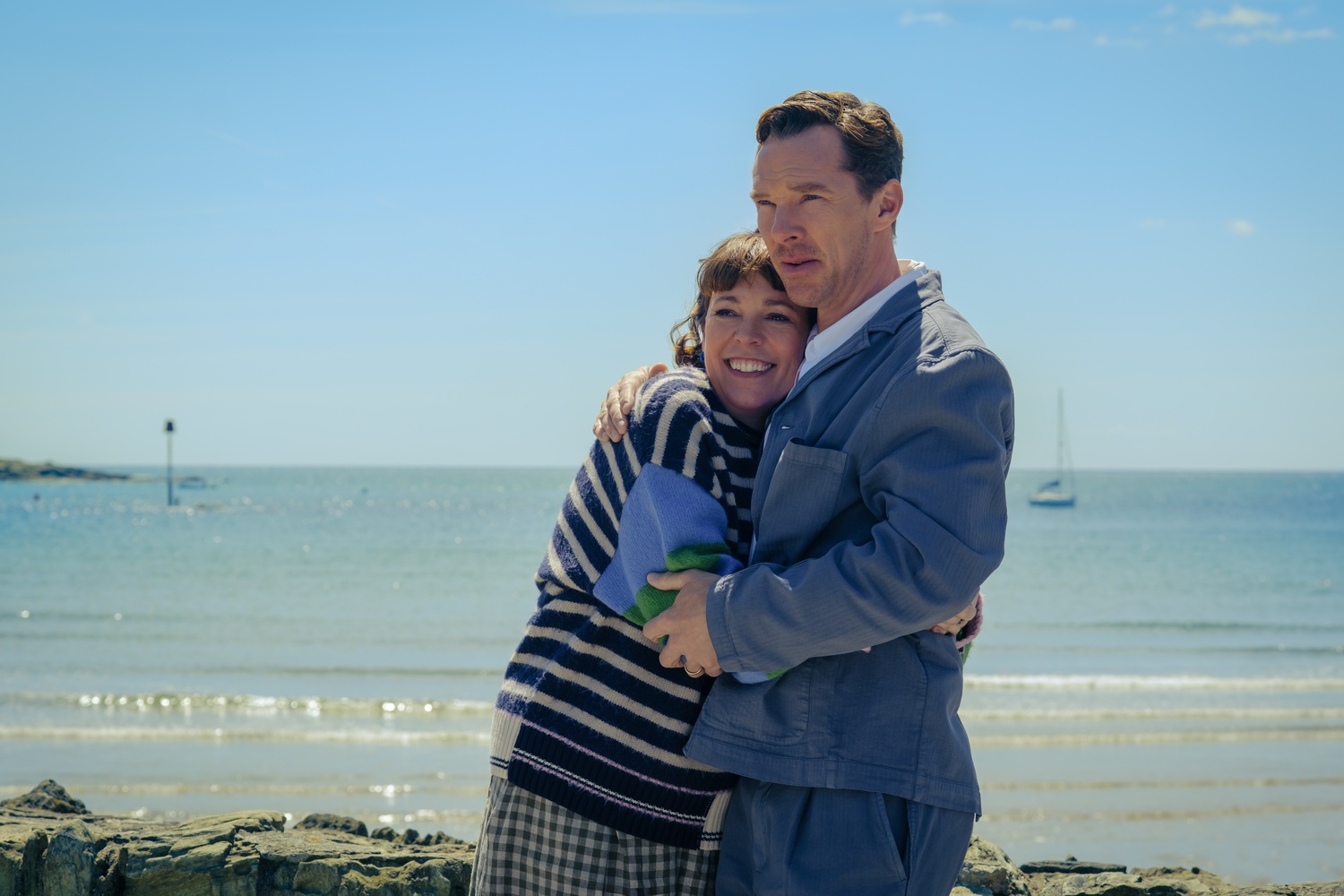
News
Summers Will Not Finish Semester of Teaching as Harvard Investigates Epstein Ties

News
Harvard College Students Report Favoring Divestment from Israel in HUA Survey

News
‘He Should Resign’: Harvard Undergrads Take Hard Line Against Summers Over Epstein Scandal

News
Harvard To Launch New Investigation Into Epstein’s Ties to Summers, Other University Affiliates

News
Harvard Students To Vote on Divestment From Israel in Inaugural HUA Election Survey
‘The Roses’ Review: Every Rose Has Its Thorn
Dir. Jay Roach — 3.5 Stars

“The Roses,” released Aug 29 and directed by Jay Roach, follows the story of Ivy (Olivia Coleman) and Theo (Benedict Cumberbatch) through their marriage and its messy and chaotic deterioration. The film’s star-studded cast also includes Andy Samberg and Kate McKinnon as Barry and Amy, a married couple who are close friends of Ivy and Theo. “The Roses” is based on the 1989 film “The War of the Roses,” which was an imagining of a book of the same name. “The Roses” proposes a modern and satirical reimagining of a married couple’s messy separation.
Ivy and Theo have a chance meeting in the restaurant where Ivy works as a chef, while Theo is there with colleagues celebrating the end of what he considers an uninspired and unsatisfactory architectural project. They are immediately infatuated with each other, and Theo impulsively agrees to move to America with Ivy. They end up as parents to a pair of twins, with Ivy remaining at home to care for the children and Theo undertaking a massive architectural project to design a naval history museum. In a moment almost “Freaky Friday”-esque in nature, the career trajectories of the two parents abruptly switch, leaving the couple to figure out how to navigate their new roles and dynamics. The film then becomes a fairly funny saga detailing the next three years of their marriage, as Ivy reaches new heights of success and her husband experiences an unfortunate occupational plateau.
Unfortunately, “The Roses” couldn’t decide if it wanted to be a lighthearted comedy or comedic satire. It touches upon complex feelings and dynamics: the difficulty of child-rearing and misaligned parenting techniques, the desire to be present for your family while also achieving career success, and navigating marital expectations during times of change. It pokes fun at upper-class millennial couples and the toxic masculinity and hypocrisy of the “progressive man.” The film contains many moments where it tries to seriously comment on those ideas and themes, but too quickly reverts back to the banter and levity that end up defining the film. It comes across ultimately as more of a pantomime than a meaningful commentary.
“The Roses” has many redeeming qualities, but also contains many pitfalls that distract from its societal critiques. The romantic dynamic between the two is arguably unconvincing, but it’s only one of many times the film asks one to suspend disbelief. Their careers and trajectories are wholly unrealistic, which would be acceptable considering the general absurdity of the film’s events, but ultimately ends up being slightly distracting. The couple’s initial introduction feels rushed, and their early courtship is skipped entirely — a choice which leaves doubts about their romantic and marital compatibility. If more runtime had been devoted to the exposition and establishment of their careers, wealth, and relationship, it would have better served the film.
To a similar effect, the story’s final act is overly long and poorly paced in comparison to the rest of the film. It is unconvincing in its extremity when compared to earlier points in the film and doesn’t feel like a natural progression for either character. The couple’s previously established dynamic, though not convincingly romantic, is lost almost entirely.
Despite the film’s inability to establish itself well as a dark comedy, it is successful in many other ways. McKinnon makes excellent use of physical comedy, often diffuses tension, and acts as a great supplement to the main couple’s conflict and banter. Furthermore, the banter between Coleman and Cumberbatch is one of the most redeeming qualities of the film. It’s an interesting part for both actors, who often occupy far more somber roles.
The score is lighthearted and suited to the film’s lightheartedness, but nothing of particular interest. The framing and cinematography serve the film well, and the acting leaves no complaints. It’s clear that the director makes some strong and intentional choices about framing in order to illustrate parallels or reflect progressions in the character relationships. Overall, the majority of “The Roses,” excluding the ending, is well-paced and highly entertaining.
“The Roses” is a good-time film, and is funny and engaging with many laugh-out-loud moments, starring a strong and well-known cast. In the end, however, it is sadly just not a movie with a convincing or well-rounded perspective on the marital topics it introduces.
—Staff writer Leah M. Maathey can be reached at leah.maathey@thecrimson.com.
Want to keep up with breaking news? Subscribe to our email newsletter.
